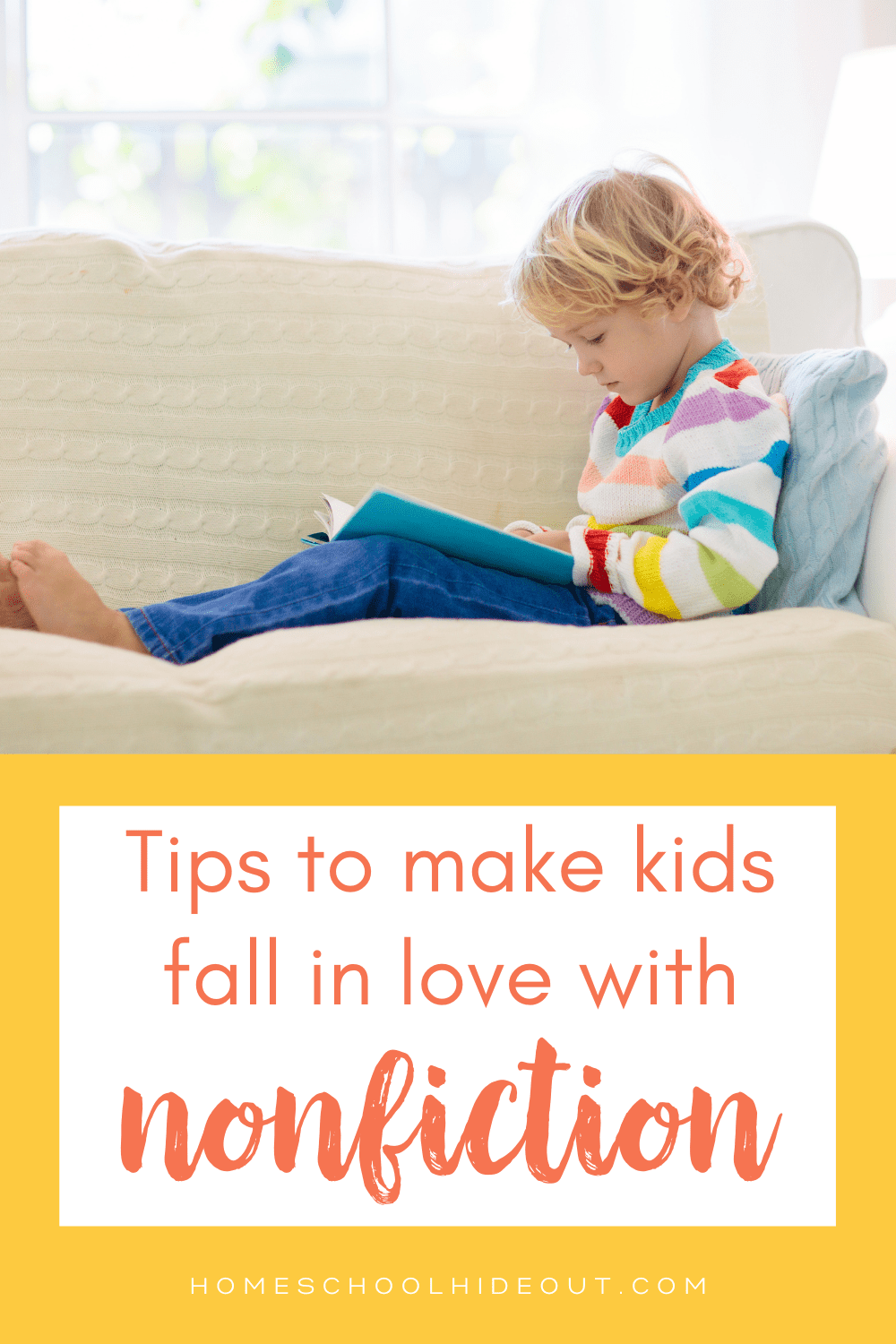Does your child love reading nonfiction books?
We surround our kids with stories and that’s a major reason kids love reading nonfiction. It helps fuel their imagination and creativity. Reading nonfiction helps build strong comprehension, improves vocabulary, and helps develop analytical skills.
Primary and elementary classes are targeted at nonfiction. That’s why it’s important to introduce nonfiction books into their daily reading habits.

7 Ideas to Help Kids Enjoy Reading Nonfiction
Take their interests into account
Identify your child’s interest when it comes to reading nonfiction. As a first step, match these areas and identify books on similar nonfiction lines.
For example, if your child loves to read about magical animals like unicorns and colorful horses, introduce nonfiction books on animals. As they get into a reading habit, you could explore new areas and topics to level their reading game.
Visuals for a greater appeal
Visuals and images are far more attractive to kids than plain text. Look for non-fiction books that have interesting visuals or color combinations that are appealing enough to the eye.
This slow transition into nonfiction reading can go a long way. Please keep in mind that children take their own time to make new habits. Make it a point to go slow and allow them the time to get used to this form of reading.
Writing an essay as a key to understanding
Writing offers multiple benefits that can aid reading. It boosts the thinking process, strengthens comprehension, and develops a creative flair. However, the chosen nonfiction book to inspire them to write must be around their area of interests. One such book could be “Into the Wild”, a book about a young chap who goes on a journey into the wild and encounters situations that change him as a person. “Into the Wild” essay samples on WritingBros helps navigate through to find inspiration for students and help them work on getting better grades and explore their interests.
Let them make choices
Allow them to make their own choices when it comes to reading nonfiction. This helps provide motivation and power that in turn helps keep the reading habit on for long.
Think from the child’s perspective and if they are drawn to certain book choices, allow them the time to explore. You will see changing interests and inquisitive nature when you give them space to make their own choices, read on topics of interest, and to finding inspiration in their preferred manner.
Spend the time to explain nonfiction features
Fiction and nonfiction have stark, distinctive features and explaining these to your child step after step further helps them to identify their liking and interests.
Compare the difference, understand the composition of writing, the formats followed to be able to explain these to kids. A better distinction between these two broad reading categories helps expand their knowledge and understanding, making it easier to make reading decisions.
Discuss reading nonfiction with kids
Discuss at great length the topics that your child is reading and ask questions based on their understanding of the topics. This healthy discussion may further encourage them to read more on similar topics or even explore the other interest areas that you helped them identify with these regular conversations.
Teach them to pick and choose
Nonfiction books usually contain a table of contents and based on the reader’s interest. It is easy to pick and choose contents that appeal. Teach your kids to read them and how it helps them jump to a part that excites them the most.
At times, the chronological order of reading a book can take away the interest, and perhaps reading as per choice can help hold onto the book for longer. With time, they’ll develop their own choice and start reading as per that.
Conclusion
These nonfiction reading strategies are aimed at enabling you to inculcate nonfiction reading habits. As they say, practice makes it better and the availability of many nonfiction pieces in the forms of books, ebooks, websites are your tools to make reading a preferred habit and something that your child will enjoy spending time doing. Talking to fellow parents and peers also provides a head start and fresh strategies that can further help in making reading a joyful habit.

Author’s Bio:
Helen Birk is a writer and editor by profession and works as an independent contributor to various popular magazines and news websites. Besides this, she freelances for a thesis and dissertation writing service and takes up gigs from university students. Other than writing, she loves staying fit and spends her time in the health club or the laughter club.






